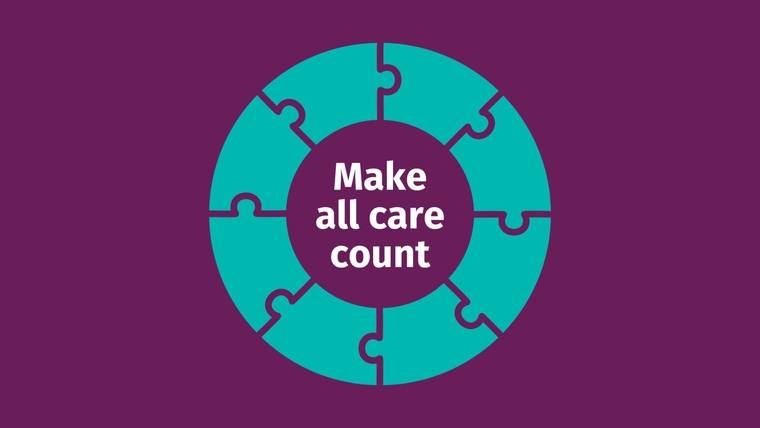Posted By: Amy Tubb
3rd June 2021
3 minute read

For almost 10 years, the Maternal Mental Health Alliance’s (MMHA) Everyone’s Business campaign has focussed primarily on securing specialist perinatal mental health (PMH) services[i] across the UK. Now, thanks to funding from the National Lottery, the MMHA is expanding this focus and launching a new campaign phase today: ‘Make all care count’.
The MMHA will continue to push for urgent gaps in quality specialist PMH services to be filled and call for other essential PMH care to be in place for all new and expectant mothers and families, including those that do not meet the threshold for specialist support.
Everyone who comes into contact with women before, during or after pregnancy has the opportunity to provide mental health support. All care counts. Only by taking a proactive, rounded approach to maternal mental health can the significant human and economic costs[ii] of undiagnosed or untreated PMH problems be prevented.
The MMHA’s ‘Make all care count’ campaign phase highlights and defines those services – in addition to specialist PMH services – that can play a crucial role in improving outcomes for women with or at risk of poor maternal mental health, including:
All women and families across the UK to have equitable access to comprehensive, high-quality PMH care, including and beyond specialist PMH services.
This includes:
The MMHA will release new Everyone’s Business campaign tools later this year and throughout this Lottery-funded phase (2021 – 2024) to continue to shine a spotlight on where support for women and families, and those professionals providing vital PMH care, is needed.
“I am delighted that the MMHA is launching ‘Make all care count’ today to expand our campaign focus to other areas of essential care that can dramatically affect the lives of women with perinatal mental health problems. Specialist services continue to be the foundational building block for perinatal mental health care but, on their own, they cannot meet the needs of all women and families. I would like to thank the National Lottery for making this work possible, as well as our members, lived experience champions and other experts who have made this day a reality.”
Everyone can help to improve the lives of women and families affected by PMH problems:
[i] Specialist PMH services include inpatient Mother and Baby units, as well as community PMH services.
[ii] The economic cost to society of not effectively treating PMH problems costs around £8.1 billion each year.
[iii] Staff working with women and families in the perinatal period need to be equipped with the appropriate training and education to support maternal mental – as well as physical – health.
[iv] Research commissioned by the MMHA showed that during the pandemic, it was women of colour and those from poorer economic backgrounds that were affected most. These inequalities need to be urgently addressed.
[v] In line with national guidelines, a specialist community PMH service should be multi-disciplinary and feature a consultant perinatal psychiatrist, specialist psychological treatment for the mother and for her relationship with her baby, as well as formal links with local GP, health visitor, midwife and IAPT or equivalent leads and relevant services in the community and voluntary sectors.